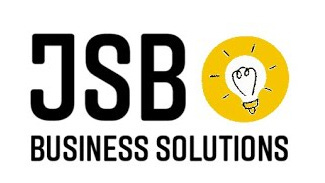The Injury You Can't See: Why Entrepreneurs Need a Personal Operating System
I made some hard decisions, removing people and things from my life and my business. I chose purpose over profit. And it came at a cost.
Recently, something inside me broke. Over the past several months, I made some hard decisions, removing people and things from my life and my business. I chose purpose over profit. And it came at a cost.
There’s a reason why executives sometimes turn a blind eye to misconduct happening right in front of them. Why entrepreneurs tolerate the antics of high performers, even as company culture disintegrates. Why business owners succumb to practices that seem financially expedient but sabotage long-term success.
For me, this meant working relentlessly for two months straight to replace and duplicate the production of those I had to let go. My life became a blur of inconsistent sleep, meals whenever I remembered, and overstimulation to keep my exhausted mind going. I binged on everything—work, social media, distractions.
Although, watching episodes of Insecure helped me see why the current cultural moment is so destructive to male-female relationships. But I digress.
After the frenzy, I was left with the mess of my life. Piles of laundry. Toys scattered everywhere. A bad cough.
Physically, I was hanging on thanks to muscle memory. But emotionally, psychologically, I was running on fumes. The fire, the drive, the focus—it was all gone. I kept doing the work, helping people, but I felt empty.
When athletes suffer a physical injury, there’s swelling, pain, an immediate inability to perform. The response is to seek medical attention and then months of careful rehab, protecting the body from further damage. But how do you know when you’ve suffered a mental injury? How do you know if you’re mentally exhausted, burned out, or dealing with trauma?
The mind doesn’t show damage the way the body does. You can’t just "eyeball" a brain injury. Often, you’re still functioning, and on the surface, everything looks fine, but inside you’re breaking down.
There are things successful entrepreneurs do when they transition from solopreneur to full-fledged business owner. They implement systems, attract and retain the right talent, and shift from being the system to relying on processes. But what about you? How are you taking care of your internal system?
Most of us have routines for brushing our teeth, showering, eating meals, and traveling. Even if you don’t have a routine, that in itself is your routine. But how often do we establish a mental fitness regimen to ensure we’re personally thriving, not just our businesses?
Implementing a Personal Operating System
As an entrepreneur, you must be intentional about your mental health. You schedule meetings, projects, and deadlines—now you need to schedule time for you. What time of day will you take a break to mentally recuperate? How much time will you dedicate to mental health exercises? What practices will you put in place to protect your mind?
Here are a few daily habits you can incorporate:
Meditation or personal affirmations: Start or end your day with a few minutes of meditation or personal affirmations. It sets the tone for a focused and grounded day.
Daily walks in nature or around your neighborhood: Being outdoors, even briefly, helps you reset and reconnect with the world outside your business.
30 minutes with an inspiring book, podcast, or vlog: Choose something that motivates you or broadens your perspective—anything that stimulates positive thinking.
Dedicated time with family, friends, or yourself: Make it a priority to enjoy life outside of work. Laughter and connection are essential to mental wellness.
Journaling or breathing exercises: Take 15 minutes daily to journal your thoughts, clear your mind, or practice mindful breathing. This simple act can help you process your emotions and reduce mental clutter.
Digital Detox Periods: Designate times during the day where you unplug from screens. No phones, laptops, or TVs—just be present. This gives your brain a break from constant overstimulation.
Gratitude Practice: Spend a few minutes each morning or evening writing down three things you’re grateful for. It’s a small shift in focus that brings attention to the positive aspects of life, rather than stress.
Mindful Breathing Breaks: Set reminders to take deep, intentional breaths throughout the day. Just a few moments of deep breathing can help calm your mind and bring you back to the present.
Physical Movement or Stretching: Every hour or so, take a break to move—whether it’s standing, stretching, or walking. This not only keeps your body active but also prevents mental fatigue from setting in.
Creative Outlets: Engage in something creative like drawing, writing, or playing an instrument without the pressure to produce. It’s a great way to stimulate your mind in a different way and unwind.
Intentional Transitions Between Tasks: Take a short mental pause between tasks. Closing one mental chapter before starting another keeps your focus sharp and prevents overwhelm.
Mindful Eating: Make meals a time to slow down. Pay attention to the food you’re eating, and savor each bite, rather than rushing through meals. This practice not only improves mindfulness but can also reduce stress-induced eating.
Weekly Self-Check-Ins: Set aside time once a week to assess your mental and emotional health. Ask yourself, “How am I really doing?” This simple practice of reflection helps you catch early signs of burnout.
Set Clear Boundaries: Learn to say no and set boundaries between your work and personal life. Whether it’s shutting off work-related notifications after a certain hour or protecting your weekends, boundaries are critical for mental wellness.
Visualization Exercises: Spend a few minutes daily visualizing your ideal outcomes—whether it’s your day, your week, or your long-term goals. This practice not only fosters positive thinking but also helps bring clarity and purpose.
Implementing even a few of these habits can make a significant difference in your mental fitness. They force you to be present, to be aware of yourself, rather than constantly reacting to the world around you.
Call to Action:
Take a moment right now to write down three simple exercises you can add to your daily or weekly routine. Be encouraged—small, intentional actions can have a profound impact on your mental and emotional well-being.
Take the first step towards elevated performance by scheduling your consultation with JSB Business Solutions. Answer a handful of questions by Clicking this link and schedule a day and time that works best for you.
The world around us wasn’t built by the exceptional. It was built by everyday people who were willing to do exceptional things. Go build something.

Thanks for reading The Grow Givers Project! Subscribe for free to receive new posts and support my work. And remember, sharing is caring.




